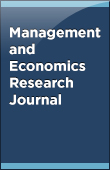


This research departs from manipulation cases that have occurred in the accounting profession. The public began to question why the auditors were involved in these manipulation cases. The purpose of this study was to examine the effect of experience, workload, and love of money on the auditor’s ability to detect fraud and professional skepticism in moderating the effect of experience, workload, and love of money on the auditor’s ability to detect fraud. This research was conducted at a Public Accounting Firm located in the Province of Bali. The number of samples taken was 64 respondents, using the nonprobability sampling method, specifically purposive sampling. Data collection was carried out through a questionnaire. The data analysis technique used is a Moderated Regression Analysis (MRA). This analysis technique was carried out using SPSS program assistance. Based on the results of the analysis found that experience has a positive effect on the ability of auditors to detect fraud, the workload has a negative effect on the ability of auditors to detect fraud, love of money has no effect on the ability of auditors to detect fraud, professional skepticism weakens the effect of experience on the ability of auditors to detect fraud, professional skepticism strengthens the effect of workload on the auditor's ability to detect fraud, professional skepticism strengthens the effect of love of money on the auditor's ability to detect fraud.